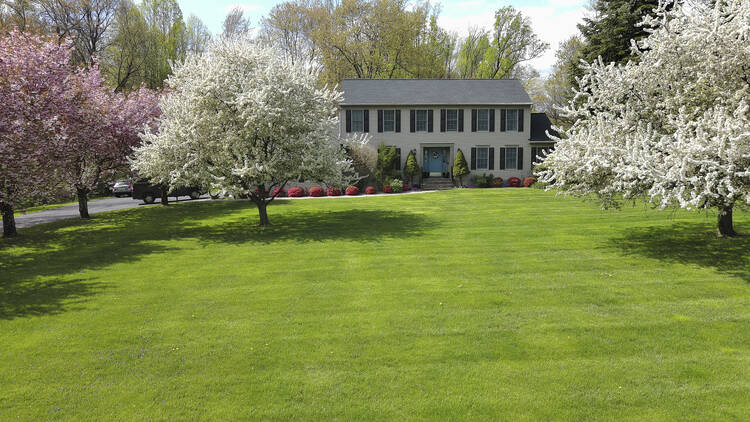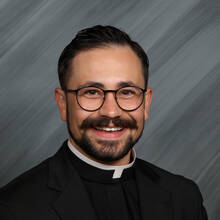Over the past half-century, the American dream has come true for many families. We have dramatically increased the size of the single-family house; created clean, safe and quiet neighborhoods;and have given many suburbs a feeling of comfort and even luxury. Yet the fulfilled dreams of some have come at the expense of the community as a whole. We have left a trail of devastation in our cities and older suburbs while promoting an environmentally destructive lifestyle. In addition, we have eroded community life and consequently hindered human flourishing.
We must realize that this is an issue of our faith and a matter of Catholic social teaching. If we seek the best only for ourselves and our own children, we have lost sight of the fundamental Christian call to care for those in our broader community.
No one can blame a family for wanting to improve their living arrangements, especially for the sake of their children. This is the American story: Immigrants come to the country with little money, live in subpar living conditions, find humble employment and forge a path for their children to have it better than they did. The desire for a nice neighborhood in which to raise one’s family and educate one’s children is not something to be ashamed of.
But when we pursue prosperity for our nuclear family without regard for how our choices affect others, we become culpable for the environmental and social problems we are perpetuating.
Take my native Northeast Ohio, for example. The population of metropolitan Cleveland has decreased by almost 200,000 since 1970. But during that time, developed land in the region has increased by 20 percent. We have paved thousands more miles of road and left an urban center to decay as we have moved farther and farther from Cleveland. This has created alarmingly isolating and car-dependent neighborhoods that have been detrimental to the well-being of both the residents and the environment.
We have seen efforts to combat sprawl on the federal, state and local levels—urban renewal plans, land bank organizations, tax incentives for businesses to move into the city—but there has been no slowing down of the migration to rapidly expanding suburbs, often called exurbs, far from the city.
So what do we do? As Catholics enlightened by copious research and emboldened by Pope Francis’ condemnation against individualism and environmental degradation, we must seriously consider where and how we live, and try to build sustainable communities with accountability to each other.
The answer is not as easy as heedlessly going back to the city. In recent decades, young adults have been moving to urban areas, but I fear that many are attracted by the excitement and amenities a big city can offer, rather than the desire to contribute to a community. They often leave for the larger homes of lush suburbs when that youthful phase has ended. Some young people do have the laudable desire to invest in community-building in the city, but is an urban revival possible when most of their peers are still infatuated with a faulty American dream?
We need to challenge the mindset that life is only about what one can personally receive from one’s surroundings. This is a far cry from John F. Kennedy’s plea to “ask not what your country can do for you—ask what you can do for your country.” It is also opposed to the Christian ethos, as articulated by Pope Francis: “the life of Jesus is a life for others. It is a life of service.”
Our first goal in this process is to shift from the so-called American dream to a model of Christian communal living. I do not mean “communist” living here, but living in a way that prioritizes community and recognizes one’s accountability for one’s neighbor and the environment.
Our next goal is to discern where to live. If a person is in the stage of looking for a new residence, they must consider the social and environmental impact of their choice. Rather than focusing only on school districts and backyard size, they should also consider the ability to get around on bicycles or public transit, the number of nearby public parks and “front porch culture” that encourages neighbors to get to know one another.
Many families are already established in their communities, and for others a move is not affordable or reasonable, given where they work. But whether or not a move is advisable, our last goal remains an urgent one: discerning how to live. There are social and environmental drawbacks that come with suburban living, but the most important factor of community living is intentionality. So it is certainly possible for someone living in an exurb to be more community-oriented and ecologically conscious than a city dweller.
That is, regardless of one’s chosen neighborhood, all Christians are called to foster meaningful community and work toward environmental sustainability. We can accomplish these two goals through activities like organizing block parties, participating in parish ministries, installing solar panels and composting kitchen waste.
Many of the faithful do not recognize this subject as faith-related. We are more apt to point to Sunday Mass attendance, advocacy against abortion and human trafficking, and cries for world peace as much clearer outlets for our religious convictions. But what is Mass but Christ’s yearning to become incarnate in us and spur us to build the kingdom of God in the world around us? It is commendable to advocate for justice or pray for peace everywhere in the world, but this does not absolve us of the duty to also live out Christ’s transforming love and peace in our daily encounters and lifestyles.
God compels us to live in total union with him, which means we must root out all instances in our lives that harm others and God’s creation. Possibly the most important thing we can do is to earnestly discern where and how God is calling us to live in unhindered harmony with our neighbors and our world.
[Related: “Why Catholics should resist NIMBYism.”]








